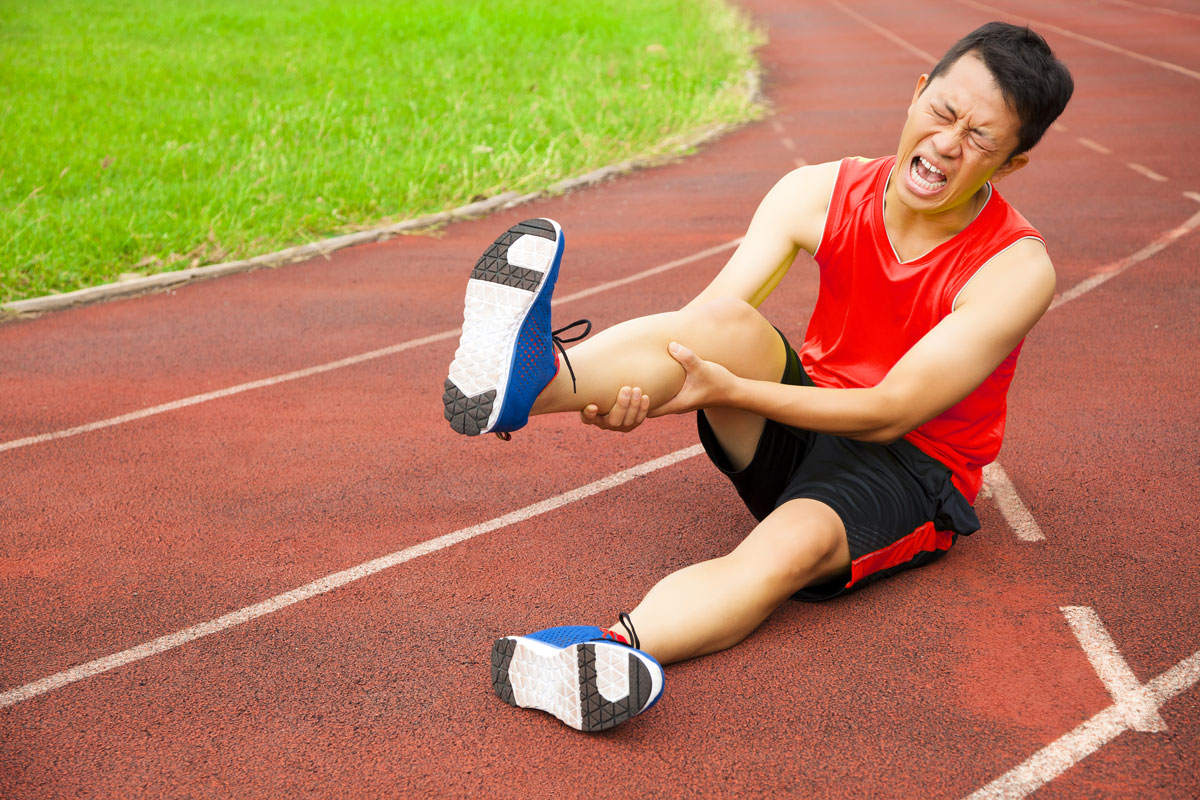If you are a runner, I am sure you will know about calf cramps.
Imagine this scenario if you want. Let’s say you are 7.5k in a 10k race and the road starts to tilt. Very slightly, but enough to put that extra tension on your legs while trying to maintain contact with the leaders. And the temperature? Well, it’s morning, but it’s hot and it’s likely to get hotter before it’s over. And to make matters worse, I was so desperate to maintain contact with the leading group, that I forgot to drink liquid at the last feeding station. And did you wear tight calf socks? I know they are fashionable, but why did you do it?
So what do we have here?
Extra tension in the muscles?
Dehydration?
Loss of essential salts?
Restriction of blood flow?
Overall, I think we are describing the execution of calf cramps, waiting for it to happen.
I’m not sure anyone has a definitive answer to the cause of the cramps, but there are certainly several steps you can take that could help you save yourself from a disaster during competition, in any sport.
1. Adequate heating
Ok, I know, but did you do it? If not, then those cramps could come. Seriously, if you have been involved in any sport at any level, then you will be aware of the importance of proper warm-up. And I don’t mean a quick walk up the stairs to the locker room! Adequate warm-up should include a routine that gently stretches the muscles to prepare them for the greatest effort and for blood to flow around your body. A warm help will not only help prevent calf cramps, but also help prevent some of the injuries that could occur when you put sudden pressure on cold muscles.
And while we talk about warming up, don’t forget about the casualties too. Warming up after exercise can also help prevent cramping and reduce the risk of injury.
2. Train hard, run easy
Have you heard this before? Do not? Well, you should think about it a bit, because it’s true. When you train for a sport, you not only practice the skills necessary to execute the event in which you compete, but you also train your body for the rigor of the event. To give an exaggerated example, if you train for a sprint and then try to run a marathon, your body will not be ready. If you try, I think you might have some serious cramping.
Remember, train hard, run easy.
3. Water is the blood of sport life.
When you start exercising, you start to sweat (or you should do it). Sweat is the natural way to cool down when you get hot, so it’s a good thing. And since your body is mainly composed of water, then you should have enough, isn’t it? Well, considering that you lose moisture from your body when you breathe, sweating removes a large amount of fluid from your system.
And your body will demand that it be replaced!
If you begin to feel dizzy, or experience a rapid heartbeat, these could be signs that you are starting to become dehydrated. I will read that if your mouth and lips feel dry, then you should bring water on board. It is not always possible to drink fluids during sports, but always have some available as soon as you can drink.
4. Sport A’int No Catwalk.
It is true! The sport is not a fashion show. If you think it is, then you are hanging in the wrong place! There is nothing wrong with looking good while competing, but be practical. Do not risk injury (or cramping) by wearing clothes that are too tight and that restrict the movement of your body, either externally or through blood flow. Believe me, I know. When I was younger, I wore ties in my socks while playing soccer (not like a fad you will understand), just to keep my socks and shin guards inside my socks. Three quarters of the way through a game, my calves would tighten, and I would roll on the ground in agony. Once it was understood, that I only had cramps, I was the subject of much mockery, but believe me, the cramps are far from funny if you are the

 HEALTH & WELLNESS5 years ago
HEALTH & WELLNESS5 years ago
 herbs2 months ago
herbs2 months ago
 HEALTH & WELLNESS4 years ago
HEALTH & WELLNESS4 years ago
 TRAINING & FITNESS5 years ago
TRAINING & FITNESS5 years ago
 HEALTH & WELLNESS5 years ago
HEALTH & WELLNESS5 years ago
 DIET & NUTRITION5 years ago
DIET & NUTRITION5 years ago
 Fitness5 years ago
Fitness5 years ago
 HEALTH & WELLNESS5 years ago
HEALTH & WELLNESS5 years ago













